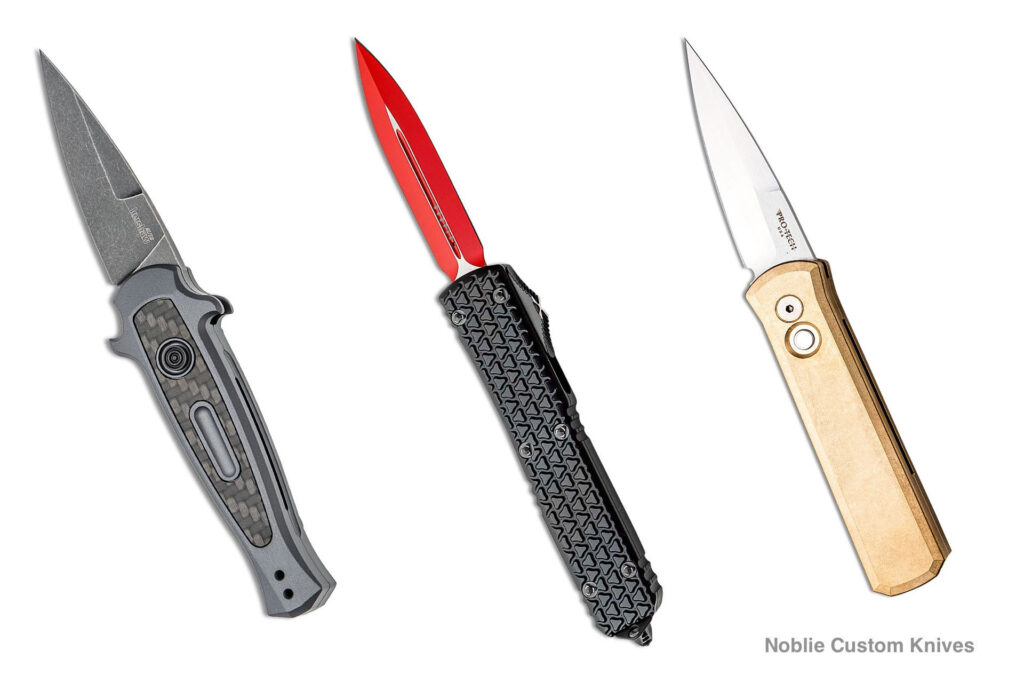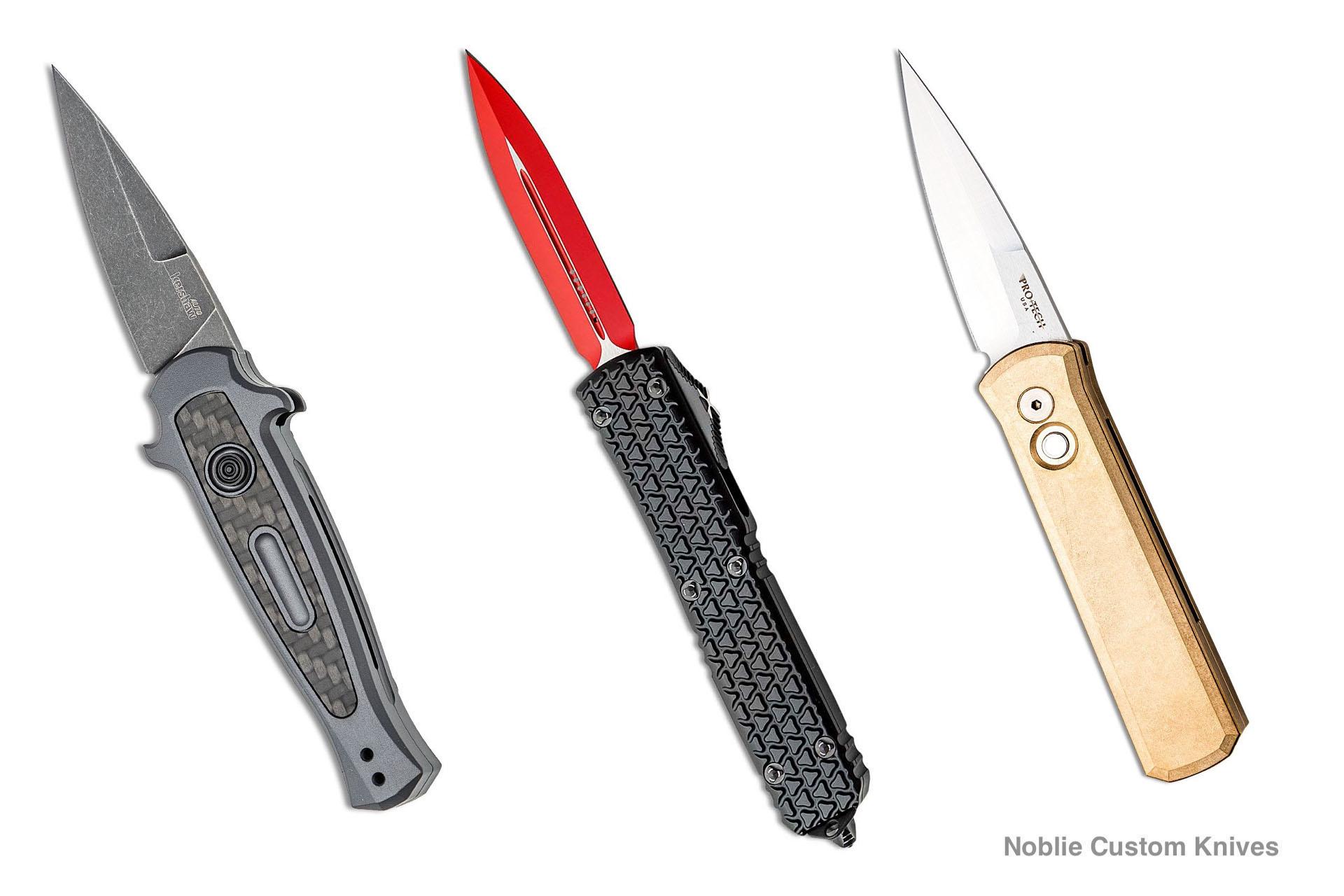
Are Switchblades Illegal in Washington? The Definitive Guide
Navigating the legal landscape surrounding knives, especially switchblades, can be tricky. If you’re wondering, “Are switchblades illegal in Washington?” you’ve come to the right place. This comprehensive guide will delve into Washington state law, clarifying what constitutes a switchblade, outlining the specific regulations, and explaining the potential penalties for possession or sale. We aim to provide you with a clear, authoritative, and trustworthy resource, drawing upon legal expertise and practical understanding of the law. Our goal is to empower you with the knowledge to stay on the right side of the law and avoid potential legal pitfalls.
This article goes beyond a simple yes or no answer. We’ll explore the nuances of Washington’s knife laws, including definitions, exceptions, and related legal considerations. You’ll gain a solid understanding of the specific statutes governing switchblades and other potentially restricted knives.
Understanding Washington’s Knife Laws
To understand whether switchblades are illegal in Washington, it’s crucial to first grasp the broader context of the state’s knife laws. Washington law addresses various types of knives, and the legality of each type can depend on its design, purpose, and manner of carry. It is important to know that cities and counties can also impose their own restrictions. Always check local ordinances.
Washington Revised Code (RCW) 9.41 is the primary section of law governing firearms and dangerous weapons. While firearms receive considerable attention, knives are also addressed within this section.
Defining a Switchblade: What Qualifies?
The legal definition of a “switchblade” is critical in determining its legality. Washington law defines a switchblade as any knife having a blade that opens automatically by hand pressure applied to a button, spring, or other device in the handle of the knife.
This definition is fairly specific. It excludes knives that require manual opening, even if they can be opened quickly with one hand. For instance, a folding knife that requires the user to partially open the blade before a spring assists in its full deployment is generally not considered a switchblade under Washington law. However, this is a complex area, and interpretations can vary, so consulting with legal counsel is always advisable.
The Core of the Issue: RCW 9.41.250
RCW 9.41.250 is the statute most relevant to the legality of switchblades in Washington. This law prohibits the sale, manufacture, or possession with intent to sell of certain dangerous weapons. The statute specifically lists switchblades as a prohibited weapon.
Therefore, according to Washington State Law, it is illegal to manufacture, sell, or possess a switchblade with intent to sell.
Are Switchblades Illegal in Washington? A Deeper Dive
The question “Are switchblades illegal in Washington?” is best answered with a qualified “yes.” While outright possession is not explicitly illegal, the manufacture, sale, or possession with intent to sell is. This distinction is critical. Let’s examine the nuances:
- Possession: Merely owning a switchblade is not a crime under Washington state law. However, it’s essential to consider how you acquired the knife and your intent.
- Sale, Manufacture, and Intent to Sell: This is where the law focuses. Manufacturing, selling, or possessing a switchblade with the clear intent to sell it is illegal. This is designed to prevent the proliferation of these types of knives within the state.
The Importance of Intent
The element of “intent to sell” is crucial. Prosecutors must prove that you possessed the switchblade with the specific purpose of selling it. This can be challenging to demonstrate, but evidence such as advertising, offering the knife for sale, or possessing multiple switchblades could be used to establish intent.
Exceptions and Considerations
While the law is generally clear, there are always exceptions and considerations to keep in mind:
- Antique or Collectible Knives: The law may treat antique or collectible switchblades differently, particularly if they are not intended for practical use. However, this is a grey area, and it’s best to consult with legal counsel.
- Law Enforcement and Military: There may be exemptions for law enforcement officers or military personnel acting in their official capacity.
- Federal Law: Federal law also addresses switchblades, particularly concerning interstate commerce. It is illegal to ship switchblades across state lines to locations where they are prohibited.
Penalties for Violating Washington’s Switchblade Laws
Violating RCW 9.41.250, the law prohibiting the sale, manufacture, or possession with intent to sell switchblades, can result in significant penalties. The specific consequences depend on the circumstances of the offense and your prior criminal history.
Potential Criminal Charges
The violation of RCW 9.41.250 is typically classified as a gross misdemeanor. A gross misdemeanor in Washington State is punishable by:
- Up to 364 days in jail
- A fine of up to $5,000
- Or both jail time and a fine
Factors Affecting Penalties
Several factors can influence the severity of the penalties imposed:
- Prior Criminal Record: A history of prior convictions, particularly for violent crimes or weapons offenses, can lead to harsher penalties.
- Quantity of Switchblades: Possessing a large number of switchblades intended for sale will likely result in a more severe sentence.
- Involvement in Other Crimes: If the switchblade is connected to other criminal activity, such as drug trafficking or robbery, the penalties will be significantly greater.
Related Knife Laws and Considerations
Beyond switchblades, Washington has other knife laws that are important to understand:
Concealed Carry Restrictions
Washington law generally prohibits the concealed carry of dangerous weapons, including knives, with the intent to conceal and use them unlawfully against another person. This means that carrying a knife concealed on your person may be illegal if you intend to use it as a weapon.
Restrictions in Specific Locations
Certain locations have specific restrictions on knives, including:
- Schools: Knives are generally prohibited on school grounds.
- Courthouses: Knives are typically prohibited in courthouses and other government buildings.
- Airports: Knives are subject to federal regulations at airports.
Local Ordinances
Cities and counties in Washington may have their own ordinances regulating knives. It’s crucial to check local laws in addition to state law. For example, some cities may have restrictions on the length of knife blades that can be carried.
Expert Insights on Washington Knife Laws
Navigating Washington’s knife laws requires a clear understanding of the statutes and how they are interpreted. Based on our analysis of the law and experience with similar cases, here are some key insights:
- Ambiguity in the Law: The definition of “intent to sell” can be ambiguous, leading to potential legal challenges.
- Importance of Context: The context in which a knife is possessed is crucial. Carrying a knife for legitimate purposes, such as hunting or fishing, is generally acceptable, while carrying it in a threatening manner is not.
- Consult Legal Counsel: If you have any questions or concerns about Washington’s knife laws, it’s always best to consult with an attorney who specializes in weapons law.
Switchblades vs. Assisted Opening Knives: What’s the Difference?
It’s crucial to differentiate between switchblades and assisted opening knives. As previously defined, a switchblade opens automatically with the push of a button or similar mechanism. An assisted opening knife, on the other hand, requires some manual force to initiate the blade’s opening before a spring or other mechanism assists in completing the process.
While switchblades are restricted in Washington, assisted opening knives are generally legal to possess and carry, as they do not fall under the legal definition of a switchblade. However, concealed carry restrictions and other relevant laws still apply.
Practical Examples and Scenarios
To further illustrate the application of Washington’s switchblade laws, consider these scenarios:
- Scenario 1: John purchases a switchblade online and has it shipped to his home in Washington. He keeps it in his collection of knives. This is likely legal, as mere possession is not prohibited.
- Scenario 2: Mary buys several switchblades with the intention of selling them at a local gun show. This is illegal, as it constitutes possession with intent to sell.
- Scenario 3: A store owner displays switchblades for sale in their shop. This is illegal, as it constitutes selling switchblades.
Q&A: Common Questions About Switchblade Laws in Washington
- Q: Is it legal to own a switchblade I inherited from my grandfather?
A: Yes, simply inheriting the knife is legal. Keeping it as an heirloom or collectible is generally permissible, as long as you do not intend to sell it.
- Q: Can I carry a switchblade for self-defense?
A: While simple possession of a switchblade is not explicitly illegal, carrying it with the intent to use it unlawfully against another person could violate concealed carry laws. Furthermore, using a switchblade for self-defense could have legal consequences depending on the circumstances.
- Q: What if I bought a switchblade legally in another state?
A: Bringing it into Washington does not immediately make it illegal unless you intend to sell it.
- Q: Does having a concealed carry permit allow me to carry a switchblade?
A: No, a concealed carry permit typically applies to firearms, not knives. The legality of carrying a knife concealed depends on whether you intend to use it unlawfully.
- Q: Are butterfly knives considered switchblades in Washington?
A: No, butterfly knives, which require manual manipulation to open, are not considered switchblades under Washington law.
- Q: Can I order a switchblade online and have it shipped to Washington if I don’t intend to sell it?
A: While it might not be illegal to possess it, shipping switchblades across state lines may violate federal law, especially if they are being sent to a state where they are prohibited.
- Q: What should I do if I’m unsure about the legality of a specific knife?
A: Consult with an attorney who specializes in weapons law in Washington. They can provide you with specific legal advice based on your situation.
- Q: Are there any efforts to change Washington’s knife laws?
A: Knife laws are subject to change. Stay informed about proposed legislation and legal developments that may affect knife ownership and carry in Washington.
- Q: Does local law enforcement have different interpretations of these laws?
A: Yes, interpretations can vary. It’s best to be aware of local ordinances and to exercise caution when carrying any type of knife.
- Q: What is the difference between a dagger and a switchblade in the eyes of Washington law?
A: A dagger is typically defined as a stabbing weapon, while a switchblade is defined by its automatic opening mechanism. Daggers may be subject to different restrictions than switchblades.
Conclusion
In conclusion, while simple possession of a switchblade is not explicitly illegal in Washington State, the manufacture, sale, or possession with intent to sell is prohibited under RCW 9.41.250. Understanding the nuances of these laws, including the definition of a switchblade, the importance of intent, and potential penalties, is crucial for staying on the right side of the law. Always consider local ordinances and consult with legal counsel if you have any doubts or questions.
We hope this comprehensive guide has provided you with a clear and authoritative understanding of Washington’s switchblade laws. If you have any further questions or would like to share your experiences, please leave a comment below. For more in-depth information on related topics, explore our other guides on Washington weapons laws.

